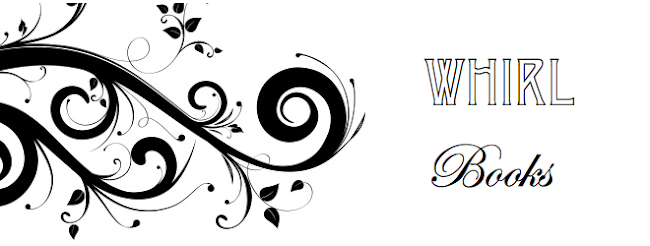Okay, this debut novel was the February selection for Literary Masters book groups and salons. So, clearly, my answer is yes. But! To really have a special discussion, I suggest you do a pairing--read The Age of Innocence by Edith Wharton first (a brilliant, sparkling gem of a novel!) and then read its "re-imagining" The Innocents by Francesca Segal. You are in for such a treat!
In her interviews, Segal acknowledges her debt to Wharton. I'll say! Reading Segal's novel, I had the same feeling I experienced while reading The Hours by Michael Cunningham (you remember--the homage to Virgina Woolfe's Mrs. Dalloway)--I kept thinking, Wow! is this bordering on plagiarism? No one seems bothered by Segal's or Cunningham's (re)writings, however, so let's not dwell there. You may want to discuss it a bit with your book club, though.
What I am going to do here is mention what your book club can discuss if you choose to read The Innocents on its own. Obviously, if you read the pairing as I suggested, you can compare and contrast the two novels. Hey! do I sense a Venn Diagram coming on?
So, what can your book club discuss? Warning: there are spoilers below! Don't read further unless you have finished the book or don't mind spoilers!
Warp speed plot synopsis: Adam and Rachel have grown up together in the tight-knit Jewish community of Hampstead Garden Suburb in London. They are now engaged and planning the lavish wedding that their family and friends expect them to have.
Enter: Ellie, the black sheep cousin who fled her home for the wickedly debauched Big Apple. She has now returned with experiences (and a reputation) that scandalizes the small village but intrigues Adam.
Fireworks ensue...
The novel starts at shul on Yom Kippur and ends at a bris, Your book club will want to discuss the role of the Jewish religion and/or the Jewish culture in the book. Is this book an exploration of Jewish identity at all? Could the story have taken place in any other tight-knit community? Is it universal or is it uniquely Jewish and how or why?
You'll want to talk about how a community works--what the benefits of belonging to one are, but also what disadvantages go along with being part of one. Can one ever entirely leave behind one's "village"?
You'll also want to discuss Ellie as a trope--she has left the village but now returns. What role is she playing in the story (besides the obvious love interest)? In other words, what does she represent? What motivates her? And why is Adam attracted to her? I will say, Literary Masters members had a wide range of reaction to Ellie, from sympathy to condemnation. One thing to consider: how she is a survivor and what that has done to her psyche--and what kind of guilt she carries. And how that informs her life choices.
You'll want to dig deep into Adam; what does he want and why does he want it? What has been the defining fact/event of his life? Does he change by the end of the story? How and why? Who does he love, if anyone? Is there a Madonna vs. Whore dynamic here at all? Will Adam ever be happy?
You'll want to dig deep into Rachel also. What does she want and why? Many Literary Masters members balked at her shallow character. But! Is she as shallow as she appears? What does she revere above all?
Speaking of appearances, you'll really want to save time to discuss the theme of appearance/image versus authenticity. What is the novel actually saying here?
What about the other themes? What is the novel saying about family? Duty? Marriage? Trust? What is it saying about security vs. freedom? Or familiarity vs. the unknown?
You'll want to consider whether there is a biblical "fall" in the story. If yes, where's the garden? What constitutes the casting out, and is there a redemption aspect also? Is the forbidden fruit knowledge or desire or both?
Perhaps connected to this, consider the names. Are they significant? So fun to think about!
And don't forget to discuss the title! Perhaps not as straightforward as it first appears. Segal stated in an interview that she first wanted the book to be called Observance. Discuss!
You'll want to talk about the role of gossip in the story and how it functions within the community as well as how it functions to propel the plot. If any of you have taken part in one of my Jane Austen Literary Salons, you should think about the role of gossip in Jane's novels!
Connected to the above, who knew what and when and how much???
Your book club can have some fun experimenting with "fan fiction"--come up with the next part of this story: do Adam and Rachel stay together and are they happy? What happens to Ellie? And so on...
What role does food play in this novel? Discuss this while eating!
This debut novel has won a myriad of literary prizes such as the Costa First Novel Award, the National Jewish Book Award for Fiction, the Sami Rohr Prize for Jewish Literature, the Betty Trask Award, the Harold U. Ribalow Prize, and it was on the long list for the Women's Prize for Fiction. Does it deserve them?
Okay, all of this should get you started! Enjoy, and let me know how it goes! Thanks for checking in with WHIRL books and Literary Masters!
WHIRL (What Have I Read Lately) Books is a site for readers to find books for themselves and their book clubs. Liz at Literary Masters runs book groups and literary salons where we "dig deep" into literary treasures.
Monday, March 10, 2014
Subscribe to:
Posts (Atom)



_-_Google_Art_Project.jpg)



